Monetary Policy
Nigeria delivers first rate cut of 2026, lowers benchmark to 26.5%
Author
-
Paul Chinedu is a financial writer and business analyst passionate about the intersection of the global economy and Africa. He examines how global trends impact African nations, providing insights that make complex economic issues accessible to all. Through his work.
Paul aims to foster awareness and dialogue about the challenges and opportunities shaping Africa’s future.
Author
-
Paul Chinedu is a financial writer and business analyst passionate about the intersection of the global economy and Africa. He examines how global trends impact African nations, providing insights that make complex economic issues accessible to all. Through his work.
Paul aims to foster awareness and dialogue about the challenges and opportunities shaping Africa’s future.
Goldman Sachs sees Nigeria’s largest rate cut in over a decade
Author
-
Amarachi is a finance writer with a knack for turning complex economic data into compelling stories. With over half a decade of writing experience—spanning content creation, journalism, and on-the-ground reporting—she found herself in finance by accident but stayed for the thrill of decoding numbers that shape economies. Now, she covers the policies, trends, and market shifts that drive Africa’s financial landscape, making crucial information accessible to readers across the continent.
At Finance In Africa, Amarachi delivers sharp, data-driven insights tailored for bankers, investors, and finance professionals. She analyses central bank policies, fiscal reforms, and regulatory shifts, translating their impact into actionable intelligence. Her coverage spans banking performance, inflation, currency movements, capital markets, fixed income, and corporate earnings—helping industry players navigate risks and opportunities with confidence.
Connect with her on LinkedIn: Amarachi Orjiude-Ndibe.
Author
-
Amarachi is a finance writer with a knack for turning complex economic data into compelling stories. With over half a decade of writing experience—spanning content creation, journalism, and on-the-ground reporting—she found herself in finance by accident but stayed for the thrill of decoding numbers that shape economies. Now, she covers the policies, trends, and market shifts that drive Africa’s financial landscape, making crucial information accessible to readers across the continent.
At Finance In Africa, Amarachi delivers sharp, data-driven insights tailored for bankers, investors, and finance professionals. She analyses central bank policies, fiscal reforms, and regulatory shifts, translating their impact into actionable intelligence. Her coverage spans banking performance, inflation, currency movements, capital markets, fixed income, and corporate earnings—helping industry players navigate risks and opportunities with confidence.
Connect with her on LinkedIn: Amarachi Orjiude-Ndibe.
Rwanda delivers largest rate hike in three years to combat rising inflation
Author
-
Paul Chinedu is a financial writer and business analyst passionate about the intersection of the global economy and Africa. He examines how global trends impact African nations, providing insights that make complex economic issues accessible to all. Through his work.
Paul aims to foster awareness and dialogue about the challenges and opportunities shaping Africa’s future.
Author
-
Paul Chinedu is a financial writer and business analyst passionate about the intersection of the global economy and Africa. He examines how global trends impact African nations, providing insights that make complex economic issues accessible to all. Through his work.
Paul aims to foster awareness and dialogue about the challenges and opportunities shaping Africa’s future.
Namibia keeps rates at 6.5% despite slowing credit growth
Author
-
Amarachi is a finance writer with a knack for turning complex economic data into compelling stories. With over half a decade of writing experience—spanning content creation, journalism, and on-the-ground reporting—she found herself in finance by accident but stayed for the thrill of decoding numbers that shape economies. Now, she covers the policies, trends, and market shifts that drive Africa’s financial landscape, making crucial information accessible to readers across the continent.
At Finance In Africa, Amarachi delivers sharp, data-driven insights tailored for bankers, investors, and finance professionals. She analyses central bank policies, fiscal reforms, and regulatory shifts, translating their impact into actionable intelligence. Her coverage spans banking performance, inflation, currency movements, capital markets, fixed income, and corporate earnings—helping industry players navigate risks and opportunities with confidence.
Connect with her on LinkedIn: Amarachi Orjiude-Ndibe.
Author
-
Amarachi is a finance writer with a knack for turning complex economic data into compelling stories. With over half a decade of writing experience—spanning content creation, journalism, and on-the-ground reporting—she found herself in finance by accident but stayed for the thrill of decoding numbers that shape economies. Now, she covers the policies, trends, and market shifts that drive Africa’s financial landscape, making crucial information accessible to readers across the continent.
At Finance In Africa, Amarachi delivers sharp, data-driven insights tailored for bankers, investors, and finance professionals. She analyses central bank policies, fiscal reforms, and regulatory shifts, translating their impact into actionable intelligence. Her coverage spans banking performance, inflation, currency movements, capital markets, fixed income, and corporate earnings—helping industry players navigate risks and opportunities with confidence.
Connect with her on LinkedIn: Amarachi Orjiude-Ndibe.
Nigeria’s fintech regime split between speed and stability — capital is feeling the strain
Author
-
Pelumi is a freelance writer with over five years of experience spanning content, creative, and academic writing. His work cuts across lifestyle, cryptocurrency, self-improvement, and technical documentation, and he has published academic papers that reflect his blend of curiosity and research. He currently collaborates with Finance in Africa, covering stories on the continent’s financial landscape. Connect with him on LinkedIn and explore his portfolio on Muck Rack.
Author
-
Pelumi is a freelance writer with over five years of experience spanning content, creative, and academic writing. His work cuts across lifestyle, cryptocurrency, self-improvement, and technical documentation, and he has published academic papers that reflect his blend of curiosity and research. He currently collaborates with Finance in Africa, covering stories on the continent’s financial landscape. Connect with him on LinkedIn and explore his portfolio on Muck Rack.
Kenya’s central bank shrugs off hold calls, cuts rate to 8.75%
Author
-
Amarachi is a finance writer with a knack for turning complex economic data into compelling stories. With over half a decade of writing experience—spanning content creation, journalism, and on-the-ground reporting—she found herself in finance by accident but stayed for the thrill of decoding numbers that shape economies. Now, she covers the policies, trends, and market shifts that drive Africa’s financial landscape, making crucial information accessible to readers across the continent.
At Finance In Africa, Amarachi delivers sharp, data-driven insights tailored for bankers, investors, and finance professionals. She analyses central bank policies, fiscal reforms, and regulatory shifts, translating their impact into actionable intelligence. Her coverage spans banking performance, inflation, currency movements, capital markets, fixed income, and corporate earnings—helping industry players navigate risks and opportunities with confidence.
Connect with her on LinkedIn: Amarachi Orjiude-Ndibe.
Author
-
Amarachi is a finance writer with a knack for turning complex economic data into compelling stories. With over half a decade of writing experience—spanning content creation, journalism, and on-the-ground reporting—she found herself in finance by accident but stayed for the thrill of decoding numbers that shape economies. Now, she covers the policies, trends, and market shifts that drive Africa’s financial landscape, making crucial information accessible to readers across the continent.
At Finance In Africa, Amarachi delivers sharp, data-driven insights tailored for bankers, investors, and finance professionals. She analyses central bank policies, fiscal reforms, and regulatory shifts, translating their impact into actionable intelligence. Her coverage spans banking performance, inflation, currency movements, capital markets, fixed income, and corporate earnings—helping industry players navigate risks and opportunities with confidence.
Connect with her on LinkedIn: Amarachi Orjiude-Ndibe.
South Africa’s central bank keeps repo rates steady amid inflation fears
Author
-
Amarachi is a finance writer with a knack for turning complex economic data into compelling stories. With over half a decade of writing experience—spanning content creation, journalism, and on-the-ground reporting—she found herself in finance by accident but stayed for the thrill of decoding numbers that shape economies. Now, she covers the policies, trends, and market shifts that drive Africa’s financial landscape, making crucial information accessible to readers across the continent.
At Finance In Africa, Amarachi delivers sharp, data-driven insights tailored for bankers, investors, and finance professionals. She analyses central bank policies, fiscal reforms, and regulatory shifts, translating their impact into actionable intelligence. Her coverage spans banking performance, inflation, currency movements, capital markets, fixed income, and corporate earnings—helping industry players navigate risks and opportunities with confidence.
Connect with her on LinkedIn: Amarachi Orjiude-Ndibe.
Author
-
Amarachi is a finance writer with a knack for turning complex economic data into compelling stories. With over half a decade of writing experience—spanning content creation, journalism, and on-the-ground reporting—she found herself in finance by accident but stayed for the thrill of decoding numbers that shape economies. Now, she covers the policies, trends, and market shifts that drive Africa’s financial landscape, making crucial information accessible to readers across the continent.
At Finance In Africa, Amarachi delivers sharp, data-driven insights tailored for bankers, investors, and finance professionals. She analyses central bank policies, fiscal reforms, and regulatory shifts, translating their impact into actionable intelligence. Her coverage spans banking performance, inflation, currency movements, capital markets, fixed income, and corporate earnings—helping industry players navigate risks and opportunities with confidence.
Connect with her on LinkedIn: Amarachi Orjiude-Ndibe.
Falling inflation, stronger reserves fuels Ghana’s first rate cut in 2026
Author
-
Amarachi is a finance writer with a knack for turning complex economic data into compelling stories. With over half a decade of writing experience—spanning content creation, journalism, and on-the-ground reporting—she found herself in finance by accident but stayed for the thrill of decoding numbers that shape economies. Now, she covers the policies, trends, and market shifts that drive Africa’s financial landscape, making crucial information accessible to readers across the continent.
At Finance In Africa, Amarachi delivers sharp, data-driven insights tailored for bankers, investors, and finance professionals. She analyses central bank policies, fiscal reforms, and regulatory shifts, translating their impact into actionable intelligence. Her coverage spans banking performance, inflation, currency movements, capital markets, fixed income, and corporate earnings—helping industry players navigate risks and opportunities with confidence.
Connect with her on LinkedIn: Amarachi Orjiude-Ndibe.
Author
-
Amarachi is a finance writer with a knack for turning complex economic data into compelling stories. With over half a decade of writing experience—spanning content creation, journalism, and on-the-ground reporting—she found herself in finance by accident but stayed for the thrill of decoding numbers that shape economies. Now, she covers the policies, trends, and market shifts that drive Africa’s financial landscape, making crucial information accessible to readers across the continent.
At Finance In Africa, Amarachi delivers sharp, data-driven insights tailored for bankers, investors, and finance professionals. She analyses central bank policies, fiscal reforms, and regulatory shifts, translating their impact into actionable intelligence. Her coverage spans banking performance, inflation, currency movements, capital markets, fixed income, and corporate earnings—helping industry players navigate risks and opportunities with confidence.
Connect with her on LinkedIn: Amarachi Orjiude-Ndibe.
Multilateral loans push Zambia’s external debt to $16 billion
Author
-
Amarachi is a finance writer with a knack for turning complex economic data into compelling stories. With over half a decade of writing experience—spanning content creation, journalism, and on-the-ground reporting—she found herself in finance by accident but stayed for the thrill of decoding numbers that shape economies. Now, she covers the policies, trends, and market shifts that drive Africa’s financial landscape, making crucial information accessible to readers across the continent.
At Finance In Africa, Amarachi delivers sharp, data-driven insights tailored for bankers, investors, and finance professionals. She analyses central bank policies, fiscal reforms, and regulatory shifts, translating their impact into actionable intelligence. Her coverage spans banking performance, inflation, currency movements, capital markets, fixed income, and corporate earnings—helping industry players navigate risks and opportunities with confidence.
Connect with her on LinkedIn: Amarachi Orjiude-Ndibe.
Author
-
Amarachi is a finance writer with a knack for turning complex economic data into compelling stories. With over half a decade of writing experience—spanning content creation, journalism, and on-the-ground reporting—she found herself in finance by accident but stayed for the thrill of decoding numbers that shape economies. Now, she covers the policies, trends, and market shifts that drive Africa’s financial landscape, making crucial information accessible to readers across the continent.
At Finance In Africa, Amarachi delivers sharp, data-driven insights tailored for bankers, investors, and finance professionals. She analyses central bank policies, fiscal reforms, and regulatory shifts, translating their impact into actionable intelligence. Her coverage spans banking performance, inflation, currency movements, capital markets, fixed income, and corporate earnings—helping industry players navigate risks and opportunities with confidence.
Connect with her on LinkedIn: Amarachi Orjiude-Ndibe.
Tanzania holds rates at 5.75% to sustain economic momentum
Author
-
Amarachi is a finance writer with a knack for turning complex economic data into compelling stories. With over half a decade of writing experience—spanning content creation, journalism, and on-the-ground reporting—she found herself in finance by accident but stayed for the thrill of decoding numbers that shape economies. Now, she covers the policies, trends, and market shifts that drive Africa’s financial landscape, making crucial information accessible to readers across the continent.
At Finance In Africa, Amarachi delivers sharp, data-driven insights tailored for bankers, investors, and finance professionals. She analyses central bank policies, fiscal reforms, and regulatory shifts, translating their impact into actionable intelligence. Her coverage spans banking performance, inflation, currency movements, capital markets, fixed income, and corporate earnings—helping industry players navigate risks and opportunities with confidence.
Connect with her on LinkedIn: Amarachi Orjiude-Ndibe.
Author
-
Amarachi is a finance writer with a knack for turning complex economic data into compelling stories. With over half a decade of writing experience—spanning content creation, journalism, and on-the-ground reporting—she found herself in finance by accident but stayed for the thrill of decoding numbers that shape economies. Now, she covers the policies, trends, and market shifts that drive Africa’s financial landscape, making crucial information accessible to readers across the continent.
At Finance In Africa, Amarachi delivers sharp, data-driven insights tailored for bankers, investors, and finance professionals. She analyses central bank policies, fiscal reforms, and regulatory shifts, translating their impact into actionable intelligence. Her coverage spans banking performance, inflation, currency movements, capital markets, fixed income, and corporate earnings—helping industry players navigate risks and opportunities with confidence.
Connect with her on LinkedIn: Amarachi Orjiude-Ndibe.
Africa looks to a Gold Bank to strengthen central bank reserves
Author
-
I’m building Finance in Africa, a platform making financial information on banking, insurance, capital markets, and fintech across the continent more accessible and actionable. My work sits at the intersection of journalism, finance, technology and storytelling—with a focus on driving industry insight and professional relevance.
Previously, I was Brand Storyteller at Moniepoint, where I led thought leadership and business storytelling that shaped investor conversations and unlocked partnerships. I also served as Managing Editor at Techpoint Africa, where I directed coverage of Africa’s fintech and innovation economy. I’ve developed industry reports, interviewed global tech and finance leaders, and co-produced events and podcasts that reached hundreds of thousands.
Let’s connect on LinkedIn or Twitter (sorry X), or send tips to emmanuel@financeinafrica.com.
Author
-
I’m building Finance in Africa, a platform making financial information on banking, insurance, capital markets, and fintech across the continent more accessible and actionable. My work sits at the intersection of journalism, finance, technology and storytelling—with a focus on driving industry insight and professional relevance.
Previously, I was Brand Storyteller at Moniepoint, where I led thought leadership and business storytelling that shaped investor conversations and unlocked partnerships. I also served as Managing Editor at Techpoint Africa, where I directed coverage of Africa’s fintech and innovation economy. I’ve developed industry reports, interviewed global tech and finance leaders, and co-produced events and podcasts that reached hundreds of thousands.
Let’s connect on LinkedIn or Twitter (sorry X), or send tips to emmanuel@financeinafrica.com.
How Africa’s central banks recalibrated interest rates in 2025
Author
-
I’m building Finance in Africa, a platform making financial information on banking, insurance, capital markets, and fintech across the continent more accessible and actionable. My work sits at the intersection of journalism, finance, technology and storytelling—with a focus on driving industry insight and professional relevance.
Previously, I was Brand Storyteller at Moniepoint, where I led thought leadership and business storytelling that shaped investor conversations and unlocked partnerships. I also served as Managing Editor at Techpoint Africa, where I directed coverage of Africa’s fintech and innovation economy. I’ve developed industry reports, interviewed global tech and finance leaders, and co-produced events and podcasts that reached hundreds of thousands.
Let’s connect on LinkedIn or Twitter (sorry X), or send tips to emmanuel@financeinafrica.com.
Author
-
I’m building Finance in Africa, a platform making financial information on banking, insurance, capital markets, and fintech across the continent more accessible and actionable. My work sits at the intersection of journalism, finance, technology and storytelling—with a focus on driving industry insight and professional relevance.
Previously, I was Brand Storyteller at Moniepoint, where I led thought leadership and business storytelling that shaped investor conversations and unlocked partnerships. I also served as Managing Editor at Techpoint Africa, where I directed coverage of Africa’s fintech and innovation economy. I’ve developed industry reports, interviewed global tech and finance leaders, and co-produced events and podcasts that reached hundreds of thousands.
Let’s connect on LinkedIn or Twitter (sorry X), or send tips to emmanuel@financeinafrica.com.
Egypt’s inflation surprise gives central bank room to resume rate cuts
Author
-
I’m building Finance in Africa, a platform making financial information on banking, insurance, capital markets, and fintech across the continent more accessible and actionable. My work sits at the intersection of journalism, finance, technology and storytelling—with a focus on driving industry insight and professional relevance.
Previously, I was Brand Storyteller at Moniepoint, where I led thought leadership and business storytelling that shaped investor conversations and unlocked partnerships. I also served as Managing Editor at Techpoint Africa, where I directed coverage of Africa’s fintech and innovation economy. I’ve developed industry reports, interviewed global tech and finance leaders, and co-produced events and podcasts that reached hundreds of thousands.
Let’s connect on LinkedIn or Twitter (sorry X), or send tips to emmanuel@financeinafrica.com.
Author
-
I’m building Finance in Africa, a platform making financial information on banking, insurance, capital markets, and fintech across the continent more accessible and actionable. My work sits at the intersection of journalism, finance, technology and storytelling—with a focus on driving industry insight and professional relevance.
Previously, I was Brand Storyteller at Moniepoint, where I led thought leadership and business storytelling that shaped investor conversations and unlocked partnerships. I also served as Managing Editor at Techpoint Africa, where I directed coverage of Africa’s fintech and innovation economy. I’ve developed industry reports, interviewed global tech and finance leaders, and co-produced events and podcasts that reached hundreds of thousands.
Let’s connect on LinkedIn or Twitter (sorry X), or send tips to emmanuel@financeinafrica.com.
Kenya cuts rate in ninth straight reduction, lowest since early 2023
Author
-
I’m building Finance in Africa, a platform making financial information on banking, insurance, capital markets, and fintech across the continent more accessible and actionable. My work sits at the intersection of journalism, finance, technology and storytelling—with a focus on driving industry insight and professional relevance.
Previously, I was Brand Storyteller at Moniepoint, where I led thought leadership and business storytelling that shaped investor conversations and unlocked partnerships. I also served as Managing Editor at Techpoint Africa, where I directed coverage of Africa’s fintech and innovation economy. I’ve developed industry reports, interviewed global tech and finance leaders, and co-produced events and podcasts that reached hundreds of thousands.
Let’s connect on LinkedIn or Twitter (sorry X), or send tips to emmanuel@financeinafrica.com.
Author
-
I’m building Finance in Africa, a platform making financial information on banking, insurance, capital markets, and fintech across the continent more accessible and actionable. My work sits at the intersection of journalism, finance, technology and storytelling—with a focus on driving industry insight and professional relevance.
Previously, I was Brand Storyteller at Moniepoint, where I led thought leadership and business storytelling that shaped investor conversations and unlocked partnerships. I also served as Managing Editor at Techpoint Africa, where I directed coverage of Africa’s fintech and innovation economy. I’ve developed industry reports, interviewed global tech and finance leaders, and co-produced events and podcasts that reached hundreds of thousands.
Let’s connect on LinkedIn or Twitter (sorry X), or send tips to emmanuel@financeinafrica.com.
Ghana cuts rate to near 4-year low as inflation holds within target
Author
-
Amarachi is a finance writer with a knack for turning complex economic data into compelling stories. With over half a decade of writing experience—spanning content creation, journalism, and on-the-ground reporting—she found herself in finance by accident but stayed for the thrill of decoding numbers that shape economies. Now, she covers the policies, trends, and market shifts that drive Africa’s financial landscape, making crucial information accessible to readers across the continent.
At Finance In Africa, Amarachi delivers sharp, data-driven insights tailored for bankers, investors, and finance professionals. She analyses central bank policies, fiscal reforms, and regulatory shifts, translating their impact into actionable intelligence. Her coverage spans banking performance, inflation, currency movements, capital markets, fixed income, and corporate earnings—helping industry players navigate risks and opportunities with confidence.
Connect with her on LinkedIn: Amarachi Orjiude-Ndibe.
Author
-
Amarachi is a finance writer with a knack for turning complex economic data into compelling stories. With over half a decade of writing experience—spanning content creation, journalism, and on-the-ground reporting—she found herself in finance by accident but stayed for the thrill of decoding numbers that shape economies. Now, she covers the policies, trends, and market shifts that drive Africa’s financial landscape, making crucial information accessible to readers across the continent.
At Finance In Africa, Amarachi delivers sharp, data-driven insights tailored for bankers, investors, and finance professionals. She analyses central bank policies, fiscal reforms, and regulatory shifts, translating their impact into actionable intelligence. Her coverage spans banking performance, inflation, currency movements, capital markets, fixed income, and corporate earnings—helping industry players navigate risks and opportunities with confidence.
Connect with her on LinkedIn: Amarachi Orjiude-Ndibe.
Nigeria joins Uganda in holding rates amid easing inflation
Author
-
Amarachi is a finance writer with a knack for turning complex economic data into compelling stories. With over half a decade of writing experience—spanning content creation, journalism, and on-the-ground reporting—she found herself in finance by accident but stayed for the thrill of decoding numbers that shape economies. Now, she covers the policies, trends, and market shifts that drive Africa’s financial landscape, making crucial information accessible to readers across the continent.
At Finance In Africa, Amarachi delivers sharp, data-driven insights tailored for bankers, investors, and finance professionals. She analyses central bank policies, fiscal reforms, and regulatory shifts, translating their impact into actionable intelligence. Her coverage spans banking performance, inflation, currency movements, capital markets, fixed income, and corporate earnings—helping industry players navigate risks and opportunities with confidence.
Connect with her on LinkedIn: Amarachi Orjiude-Ndibe.
Author
-
Amarachi is a finance writer with a knack for turning complex economic data into compelling stories. With over half a decade of writing experience—spanning content creation, journalism, and on-the-ground reporting—she found herself in finance by accident but stayed for the thrill of decoding numbers that shape economies. Now, she covers the policies, trends, and market shifts that drive Africa’s financial landscape, making crucial information accessible to readers across the continent.
At Finance In Africa, Amarachi delivers sharp, data-driven insights tailored for bankers, investors, and finance professionals. She analyses central bank policies, fiscal reforms, and regulatory shifts, translating their impact into actionable intelligence. Her coverage spans banking performance, inflation, currency movements, capital markets, fixed income, and corporate earnings—helping industry players navigate risks and opportunities with confidence.
Connect with her on LinkedIn: Amarachi Orjiude-Ndibe.
South Africa cuts lending rates to 3-year low despite rising inflation
Author
-
Bunmi holds a degree in Economics from the University of Lagos and has over seven years of experience in content writing.
Her career includes roles as a financial and business journalist at BusinessDay Media and TechCabal, as well as leading the research team at SBM Intelligence—an Africa-focused market intelligence and strategic consulting firm.
She currently serves as Editor at Finance in Africa, a subsidiary of BusinessFront, publishers of Techpoint Africa, Energy in Africa. Catch up with her on Linkedin Bunmi Bailey.
Author
-
Bunmi holds a degree in Economics from the University of Lagos and has over seven years of experience in content writing.
Her career includes roles as a financial and business journalist at BusinessDay Media and TechCabal, as well as leading the research team at SBM Intelligence—an Africa-focused market intelligence and strategic consulting firm.
She currently serves as Editor at Finance in Africa, a subsidiary of BusinessFront, publishers of Techpoint Africa, Energy in Africa. Catch up with her on Linkedin Bunmi Bailey.
Zambia joins African peers in cutting interest rates in 2025
Author
-
Bunmi holds a degree in Economics from the University of Lagos and has over seven years of experience in content writing.
Her career includes roles as a financial and business journalist at BusinessDay Media and TechCabal, as well as leading the research team at SBM Intelligence—an Africa-focused market intelligence and strategic consulting firm.
She currently serves as Editor at Finance in Africa, a subsidiary of BusinessFront, publishers of Techpoint Africa, Energy in Africa. Catch up with her on Linkedin Bunmi Bailey.
Author
-
Bunmi holds a degree in Economics from the University of Lagos and has over seven years of experience in content writing.
Her career includes roles as a financial and business journalist at BusinessDay Media and TechCabal, as well as leading the research team at SBM Intelligence—an Africa-focused market intelligence and strategic consulting firm.
She currently serves as Editor at Finance in Africa, a subsidiary of BusinessFront, publishers of Techpoint Africa, Energy in Africa. Catch up with her on Linkedin Bunmi Bailey.
Uganda holds key policy rate at 9.75% as inflation hits seven-month low
Author
-
Bunmi holds a degree in Economics from the University of Lagos and has over seven years of experience in content writing.
Her career includes roles as a financial and business journalist at BusinessDay Media and TechCabal, as well as leading the research team at SBM Intelligence—an Africa-focused market intelligence and strategic consulting firm.
She currently serves as Editor at Finance in Africa, a subsidiary of BusinessFront, publishers of Techpoint Africa, Energy in Africa. Catch up with her on Linkedin Bunmi Bailey.
Author
-
Bunmi holds a degree in Economics from the University of Lagos and has over seven years of experience in content writing.
Her career includes roles as a financial and business journalist at BusinessDay Media and TechCabal, as well as leading the research team at SBM Intelligence—an Africa-focused market intelligence and strategic consulting firm.
She currently serves as Editor at Finance in Africa, a subsidiary of BusinessFront, publishers of Techpoint Africa, Energy in Africa. Catch up with her on Linkedin Bunmi Bailey.
Top stories
Leverage how money works in Africa
Get exclusive insights across banking, payments, and technology to gain a competitive advantage in Africa’s financial sector.

The Central Bank of Nigeria (CBN) delivered its first policy easing of 2026 on February 24, announcing a 50 basis point cut in the Monetary Policy Rate (MPR) to 26.5% from 27%. This marks a cautious but meaningful pivot after more than a year of aggressive tightening.

Governor Olayemi Cardoso is scheduled to announce the Monetary Policy Committee’s decision later today (Tuesday) in Abuja, with investors closely watching for signals that policymakers are shifting focus from inflation control toward supporting growth.

The latest adjustment represents the largest single hike since August 2023 and brings cumulative tightening to 75 basis points since the bank adopted a more hawkish stance in September 2025.
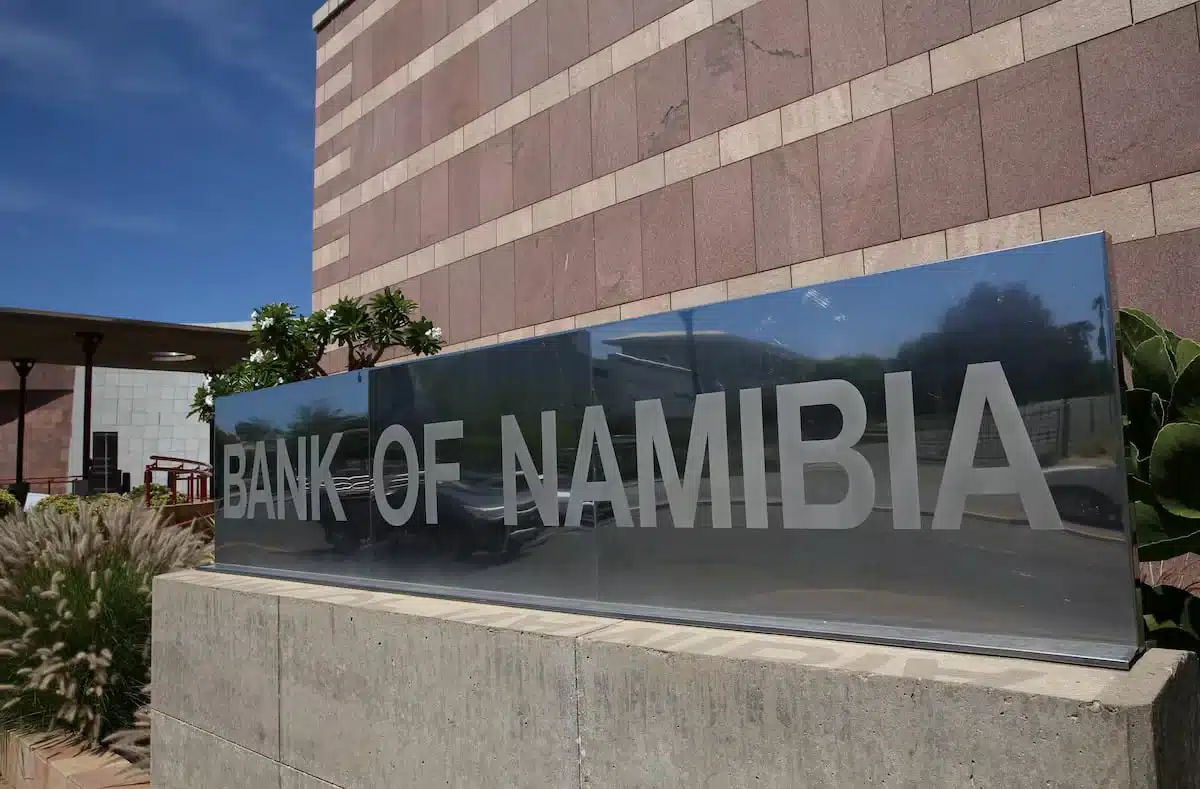
The widely expected move mirrors recent developments in South Africa, where monetary policy decisions continue to shape Namibia’s outlook.
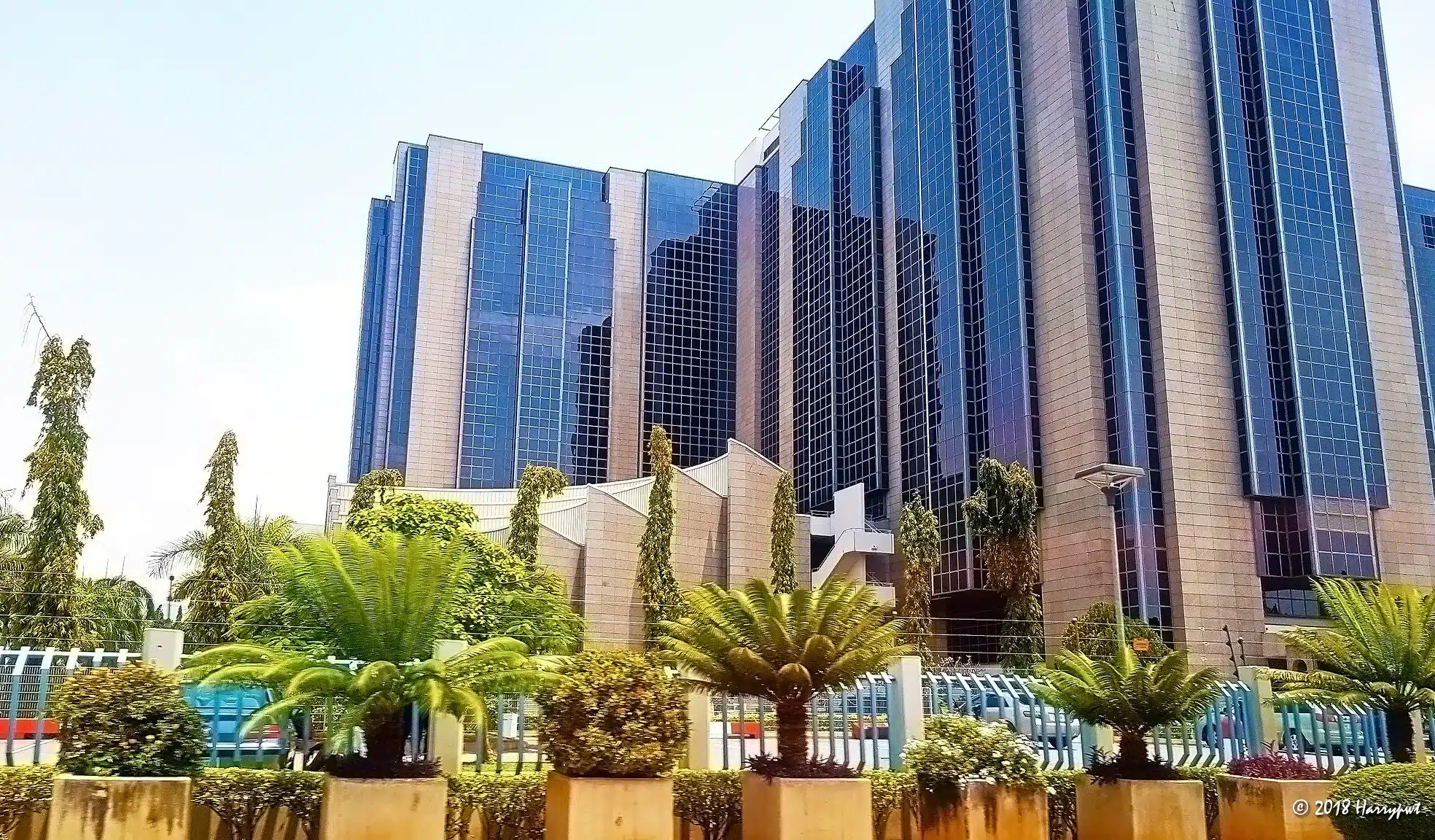
Nigeria’s fintech ecosystem is one of Africa’s most vibrant, with its nucleus positioned in Lagos. According to the 2024 annual data released by the Nigeria Inter-Bank Settlement System (NIBSS)…

The decision marks the 10th consecutive reduction since the easing cycle began in 2024 and brings the Central Bank Rate (CBR) to its lowest level since January 2023.
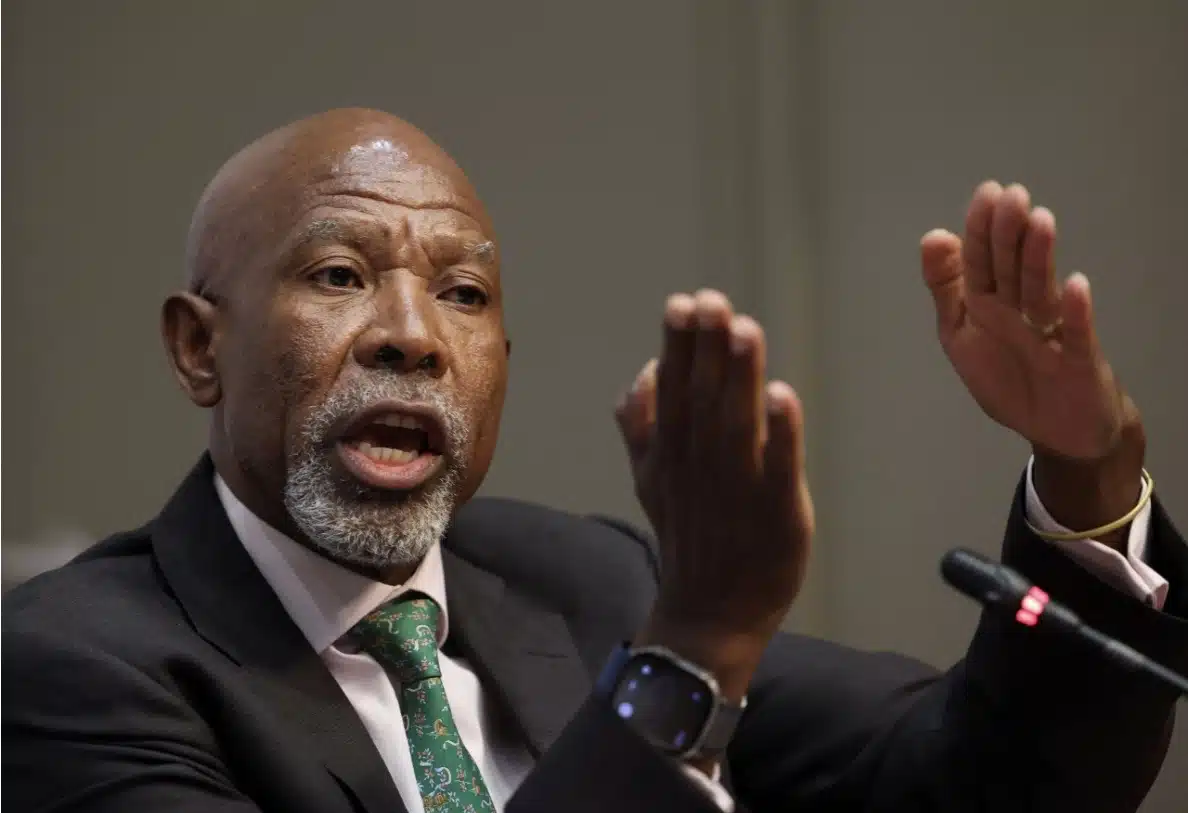
While inflation remains close to target and expectations well anchored, policymakers fear a potential hike in food and energy costs could reignite price pressures.

The decision, reached at the conclusion of its 128th Monetary Policy Committee meeting on Wednesday, marks the fourth consecutive reduction, following faster-than-expected slowdown in inflationary pressures.

From South Africa to Ghana, Africa’s top ten economies introduced debt securities to finance the economy, balance fiscal deficit, and settle maturing debts amid leading macro economy indicators.
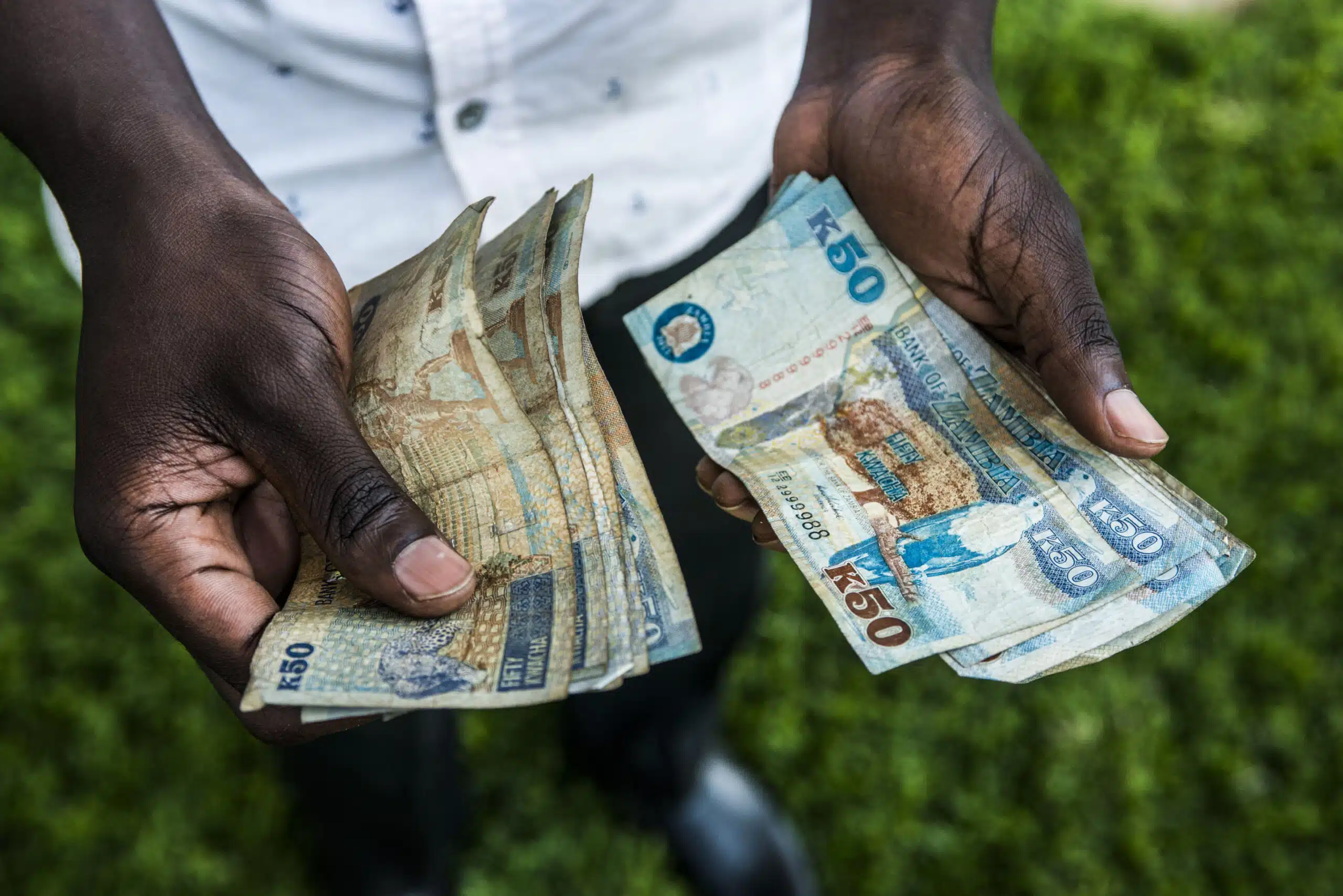
Zambia’s external debt rose to $16bn in Q3 2025, driven by growing reliance on multilateral loans as market access stayed limited after its 2020 default.

The decision marks the bank’s first monetary move of the year, and the second consecutive rate hold, following a cut in July 2025.

Egypt and Afreximbank are studying a pan-African Gold Bank to anchor gold refining, vaulting and trading on the continent and reduce reliance on offshore hubs.
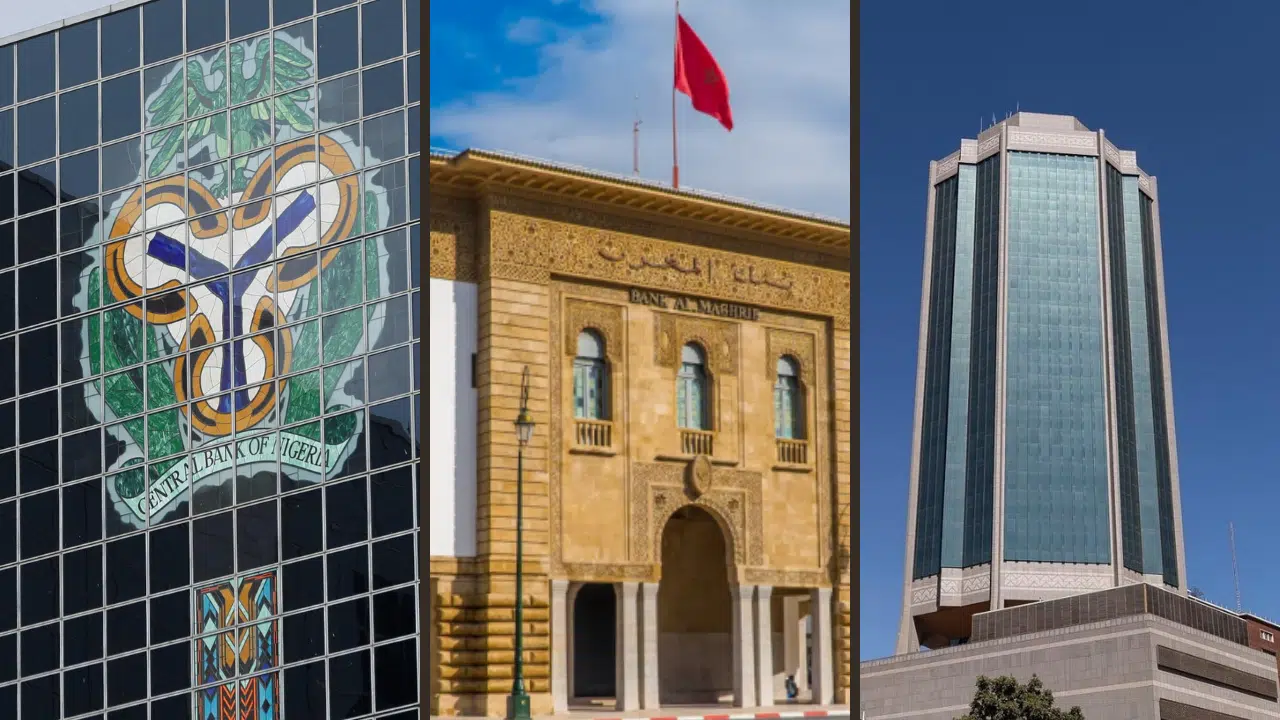
After two years of tightening, African central banks split in 2025—some cutting aggressively as inflation eased, others holding firm to protect currency stability and anchor hard-won disinflation gains.

Egypt’s inflation cooled more than expected in November, easing pressure on the central bank and strengthening the case for resuming rate cuts at its 25 December meeting.
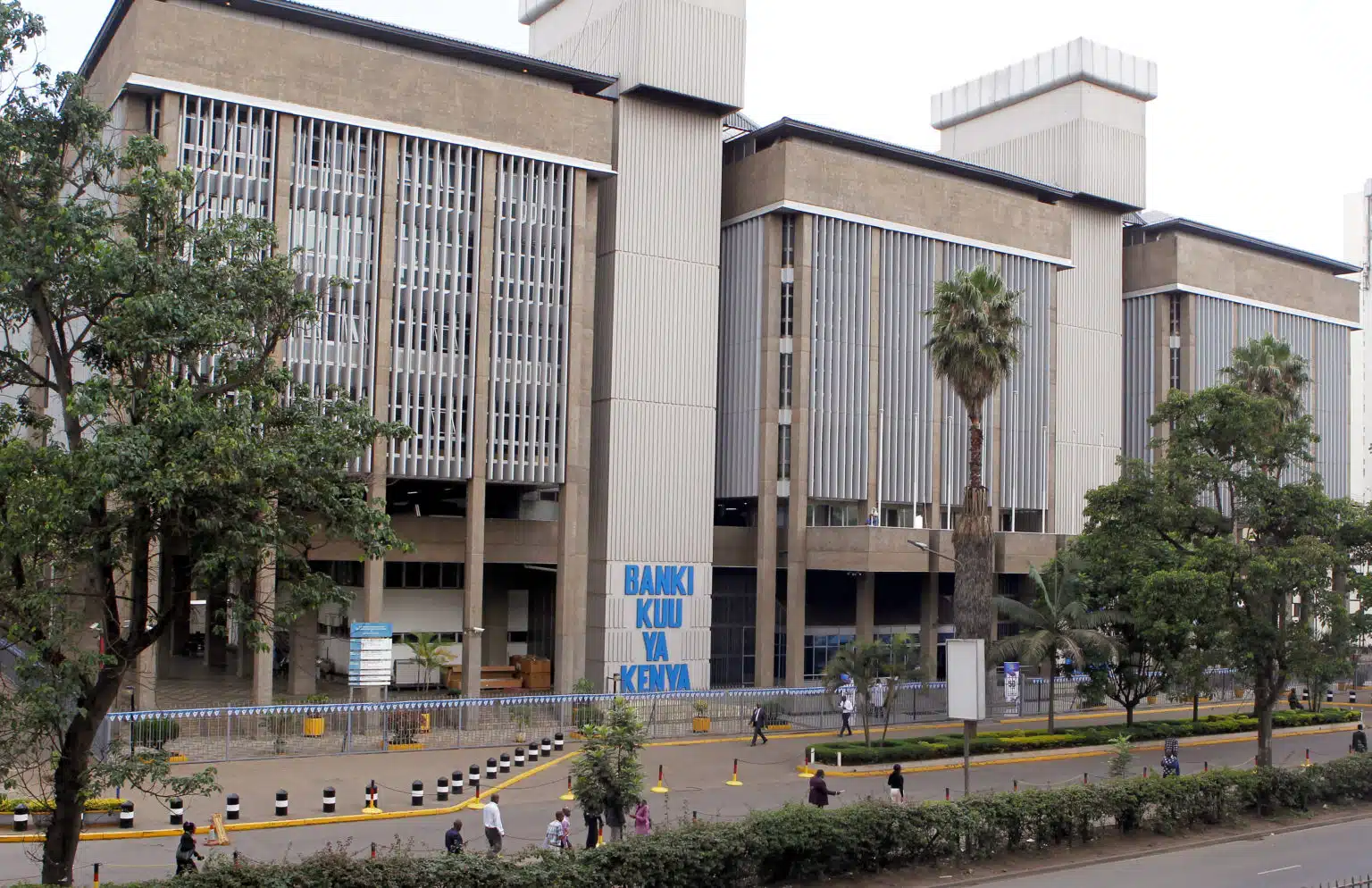
Kenya cuts its benchmark rate to 9% in a ninth straight easing move, bringing borrowing costs to their lowest since early 2023 as credit conditions and FX reserves strengthen.

The BoG’s latest decision aligns strongly with market expectations and reflects the bank’s confidence that price growth will remain contained in the near term.

Nigeria’s pause echoes the Bank of Uganda’s decision earlier this month to keep its key lending rate unchanged at 9.75% for the fifth consecutive policy meeting, despite inflation falling to a seven-month low in October.
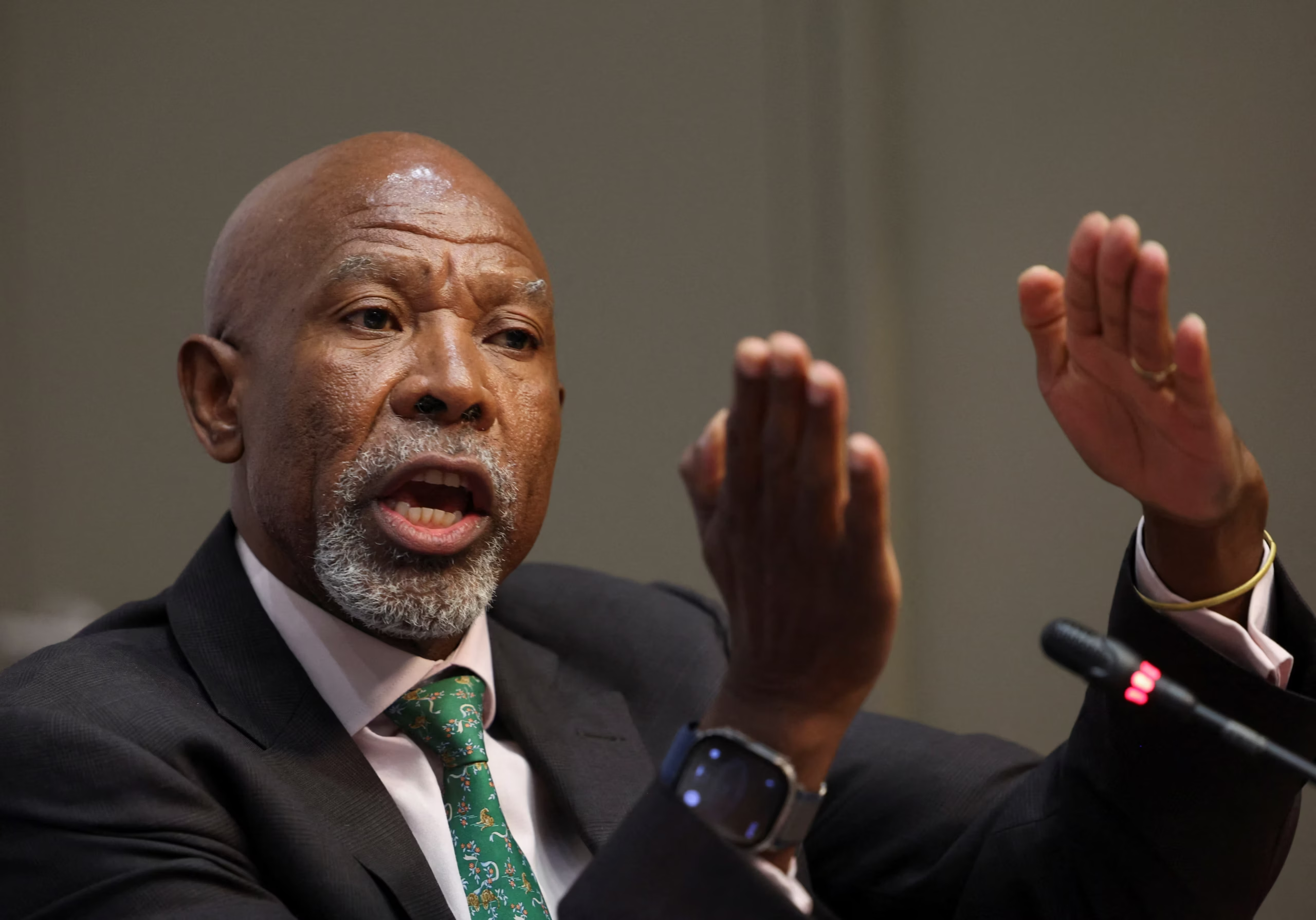
Africa’s most industrialised economy is among several across the continent easing monetary policy this year. Zambia cut its key lending rate for the first time in more than five years, while Nigeria, Ghana, Egypt, and Kenya have also lowered rates.

The Bank of Zambia has reduced its key lending rate for the first time in over five years, citing slowing inflation in Africa’s second-largest copper and cobalt producer.

The decision comes three days after S&P Global Ratings upgraded the country’s sovereign rating outlook to “positive” from “stable,” citing stronger growth prospects and rising per capita income.
Leverage how money works in Africa
Get exclusive insights across banking, payments, and technology to gain a competitive advantage in Africa’s financial sector.

